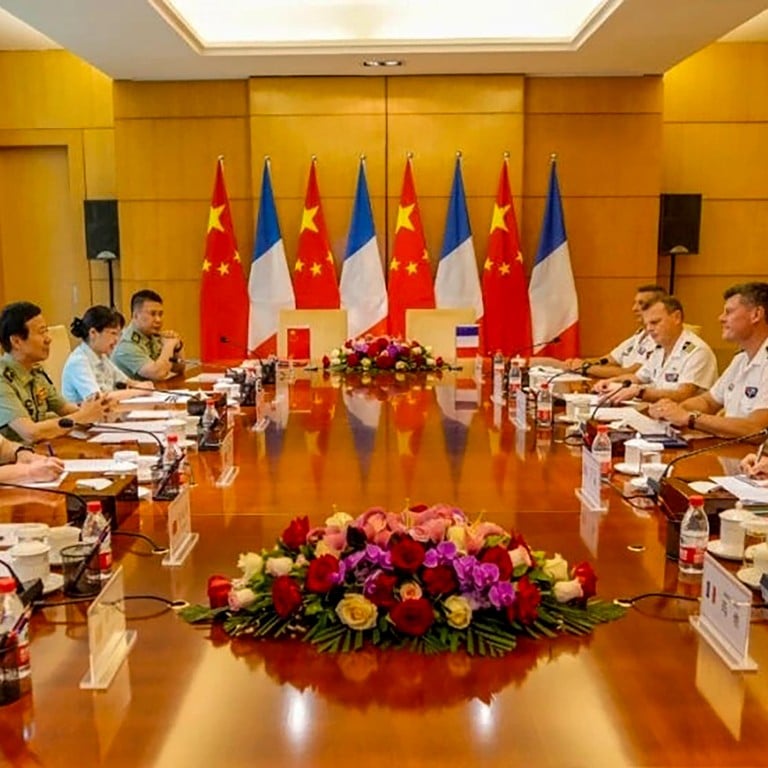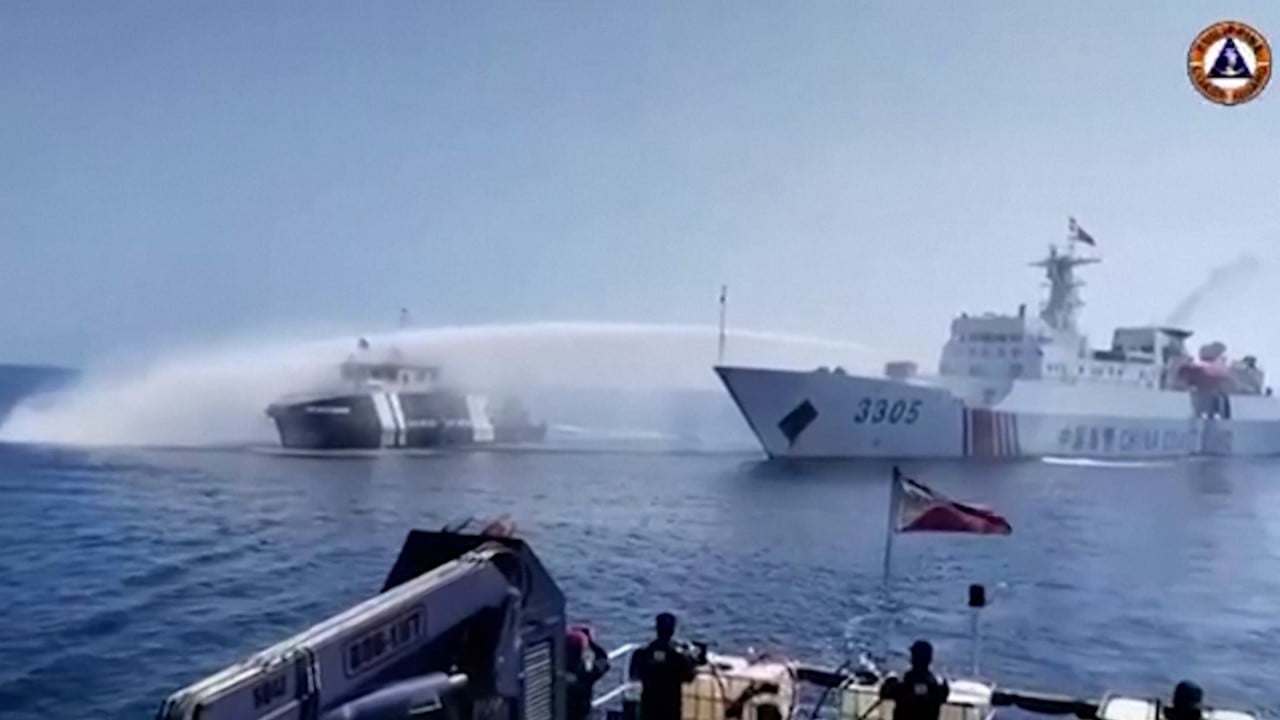
China, France agree to deepen military cooperation as South China Sea tensions rise
- Agreement on inter-theatre cooperation and dialogue mechanism with PLA comes as France joins US-Philippine drills in contested South China Sea
- Sino-French naval and air force cooperation will jointly safeguard regional security and stability, China’s defence ministry says
Collaboration between the two militaries’ naval and air forces will help to further deepen mutual trust and cooperation, and jointly safeguard regional security and stability, China’s defence ministry said in a statement on Friday.
General Wang Xiubin, commander of the People’s Liberation Army’s Southern Theatre Command, and French Rear Admiral Geoffroy d’Andigne, commander of the Pacific Ocean and French Polynesian maritime zones, signed the agreement on Thursday, the ministry statement said. The Southern Theatre Command is the PLA arm that oversees the South China Sea.
The signing came as d’Andigne visited the Southern Theatre Command, where he also exchanged views with Wang on issues including “international and regional security situation”, the statement said.
According to the Southern Theatre Command, the French delegation visited its naval and air forces during their visit from Wednesday to Friday.
The signing of the cooperation agreement follows a consensus reached between President Xi Jinping and his French counterpart Emmanuel Macron during his visit to China last year, when they agreed to deepen military communication and strengthen mutual understanding on security issues.
The move towards forging closer Sino-French military ties comes amid increasing confrontations between China and the Philippines over maritime rights in the South China Sea.
It also comes as France takes part for the first time in the Balikatan exercises, annual US-Philippine naval drills running from Monday until May 10. In another first, the exercise will extend beyond the Philippines’ territorial seas, into South China Sea waters also claimed by Beijing.
Philippine, US and French naval ships involved in the drills sailed from Palawan on Thursday to the exercise area in the West Philippine Sea, state-run Philippine News Agency reported, referring to areas of the South China Sea regarded by Manila as its exclusive economic zone.
Manila has accused the Chinese coastguard of ramming and firing water cannons at Philippine vessels on supply missions to a military outpost on the Second Thomas Shoal. The shoal, called Renai Jiao in Chinese, is controlled by Manila. It is part of the Spratly Islands chain claimed by both countries and called Nansha by China.
France and the Philippines also begin talks next month on a defence pact that would allow their troops to hold exercises in each other’s territory, French ambassador to Manila Marie Fontanel said on Thursday, according to Associated Press.
France has territories in the Pacific and Indian Ocean, and attaches great importance to security in the region. It has 1.6 million citizens living in French overseas territories including in French Polynesia.
Philippines flags ‘upsurge’ in Chinese militia as joint drills with US kick off
The French navy has in the past carried out patrols in the South China Sea to promote freedom of navigation.
China claims almost the whole of the South China Sea under what is calls its historical “nine-dash line”.
Apart from the Philippines, rival claimants in the resource-rich, busy waterway include Malaysia, Vietnam and Brunei. In 2016, the Permanent Court of Arbitration in The Hague said China’s claims had no legal basis, a decision Beijing has rejected.


